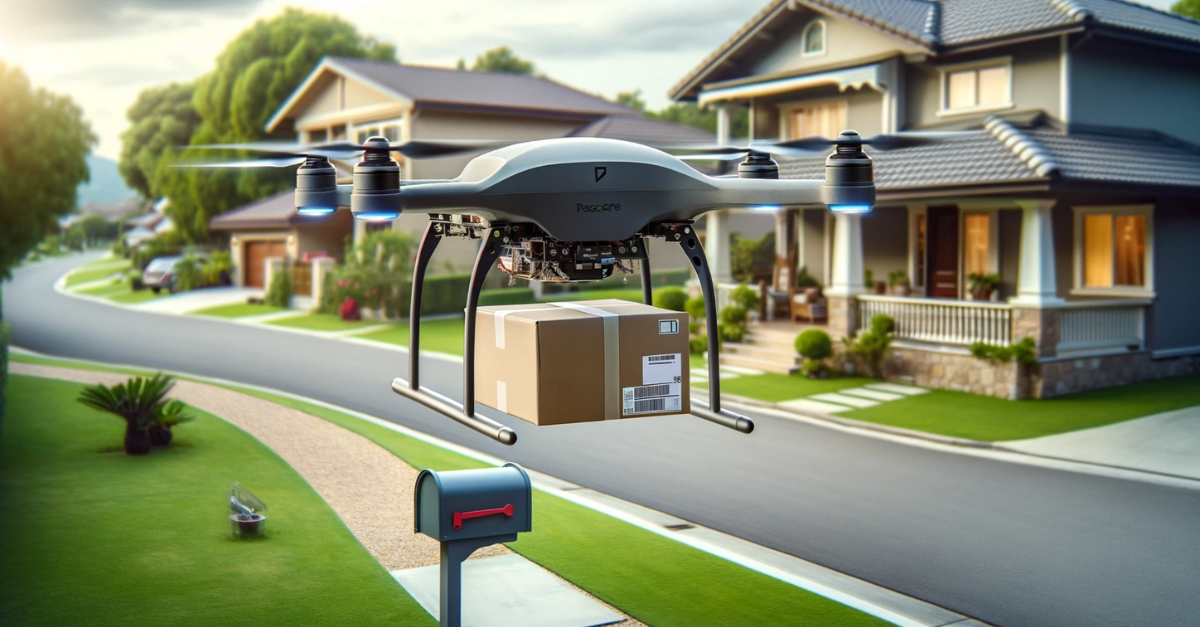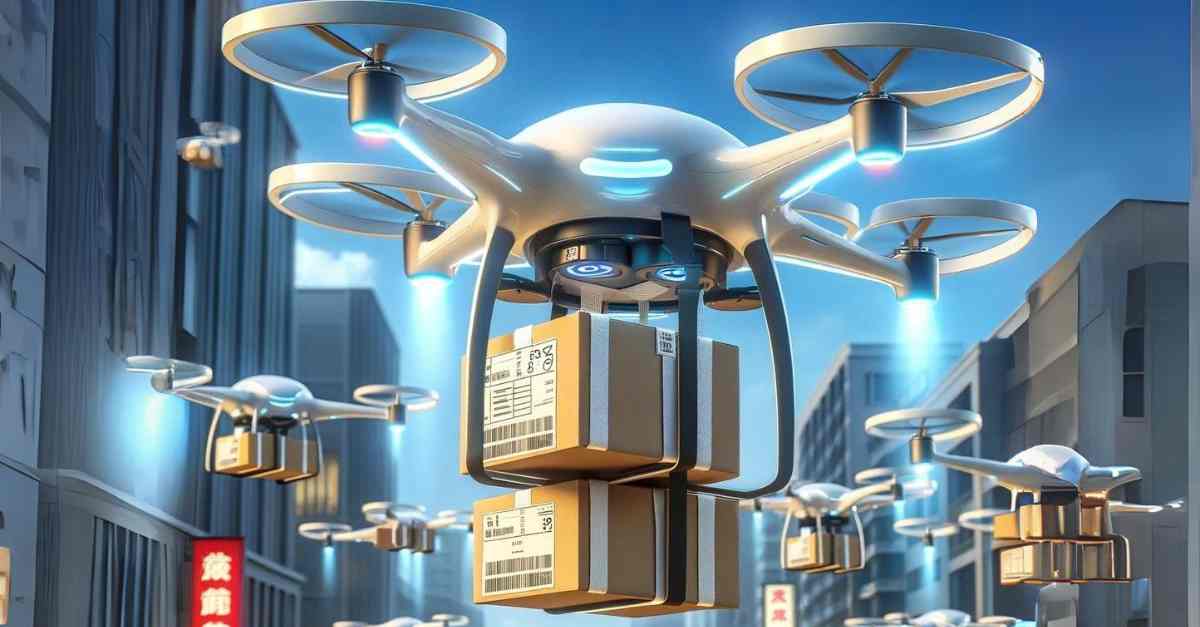We live in a world driven by instant gratification, where consumers demand faster delivery times than ever before. This shift has compelled businesses to reimagine their logistics and fulfillment strategies, driven by the innovative use of drone technology.
Drones, or unmanned aerial vehicles (UAVs), are rapidly transforming the delivery landscape, offering unprecedented benefits in terms of cost, speed, and environmental impact. Several pioneering companies have successfully integrated drones into their delivery systems, demonstrating the potential of this technology to revolutionize logistics.

Current Applications
In warehouse operations, drones are already making a significant impact by saving time and reducing the need for personnel to perform repetitive and physically demanding tasks. These agile devices are used to check stock levels in hard-to-reach areas, quickly scanning barcodes and RFID tags on inventory. This ensures accurate, real-time data without interrupting workflow, reducing the need for manual inventory checks, minimizing errors, and enhancing overall efficiency.
One of the most talked-about applications of drones is in package delivery. Companies like Amazon have been at the forefront of this innovation, using drones to deliver packages to customers' doorsteps. This method of delivery offers several advantages: drones can bypass traffic and take the most direct route, significantly reducing delivery times. With fewer personnel needed for deliveries, companies can cut labor costs and pass those savings on to customers. Additionally, drones typically use electric power, reducing the carbon footprint compared to traditional delivery vehicles.
Beyond Amazon, UPS has established a dedicated drone delivery airline, UPS Flight Forward, which has received FAA certification to operate beyond the operator’s line of sight. This service primarily targets the healthcare sector, where timely deliveries are crucial. For instance, UPS partnered with Matternet to deliver medical supplies to hospitals in North Carolina and with CVS to deliver prescriptions to retirement communities in Florida. These initiatives highlight the efficiency and reliability of drones in critical logistics operations.
The Next Decade: A Vision for Drone Logistics
As we look to the future, the trajectory of drone technology in logistics is set to expand even further. Advances in artificial intelligence and machine learning will enable drones to become more autonomous, requiring minimal human intervention. Beyond current uses, drones will find applications in new sectors, including healthcare for delivering medical supplies and agriculture for monitoring and managing crops.
Governments will establish clearer regulations, making it easier for companies to integrate drones into their logistics operations. The development of drone-friendly infrastructure, such as landing pads and charging stations, will support widespread adoption. Furthermore, drones will become more capable, with longer flight times, higher payload capacities, and better navigation systems, allowing them to handle more complex logistics tasks.
Check Out Related Articles Here:

China's Low-Altitude Economy: A High-Flying Opportunity for the Semiconductor Industry
Why We Are One
For over 40 years, IBS Electronics Group has provided a broad range of integrated supply chain and electronicsmanufacturing solutions tailored specific to our customer's operations. As your one source for the industry’s top brands all in one place, our engineers specialize in reducing supply chain complexity and are here to provide you with dedicated support from prototype to production.




.png)


.png?resizemode=force&maxsidesize=96)